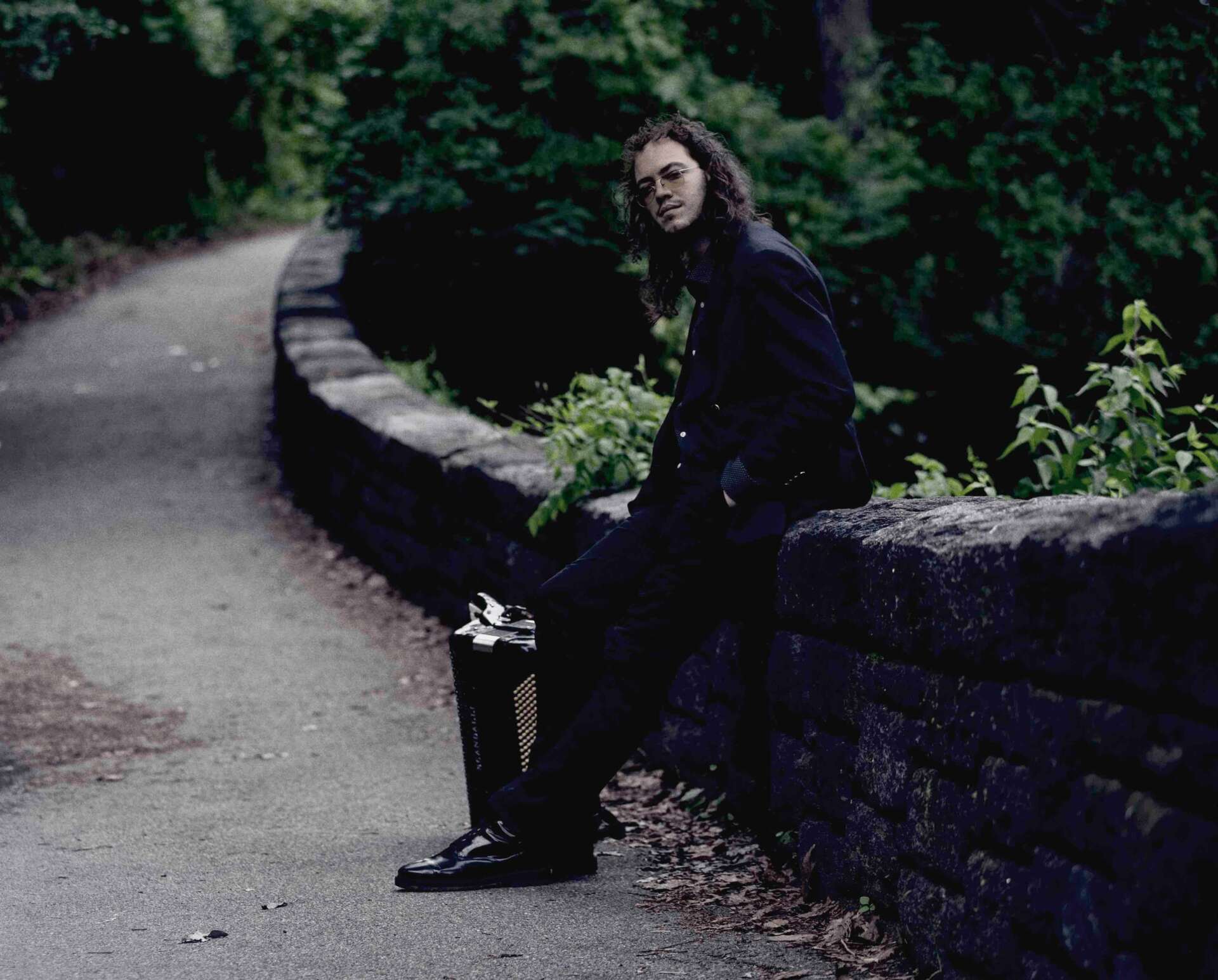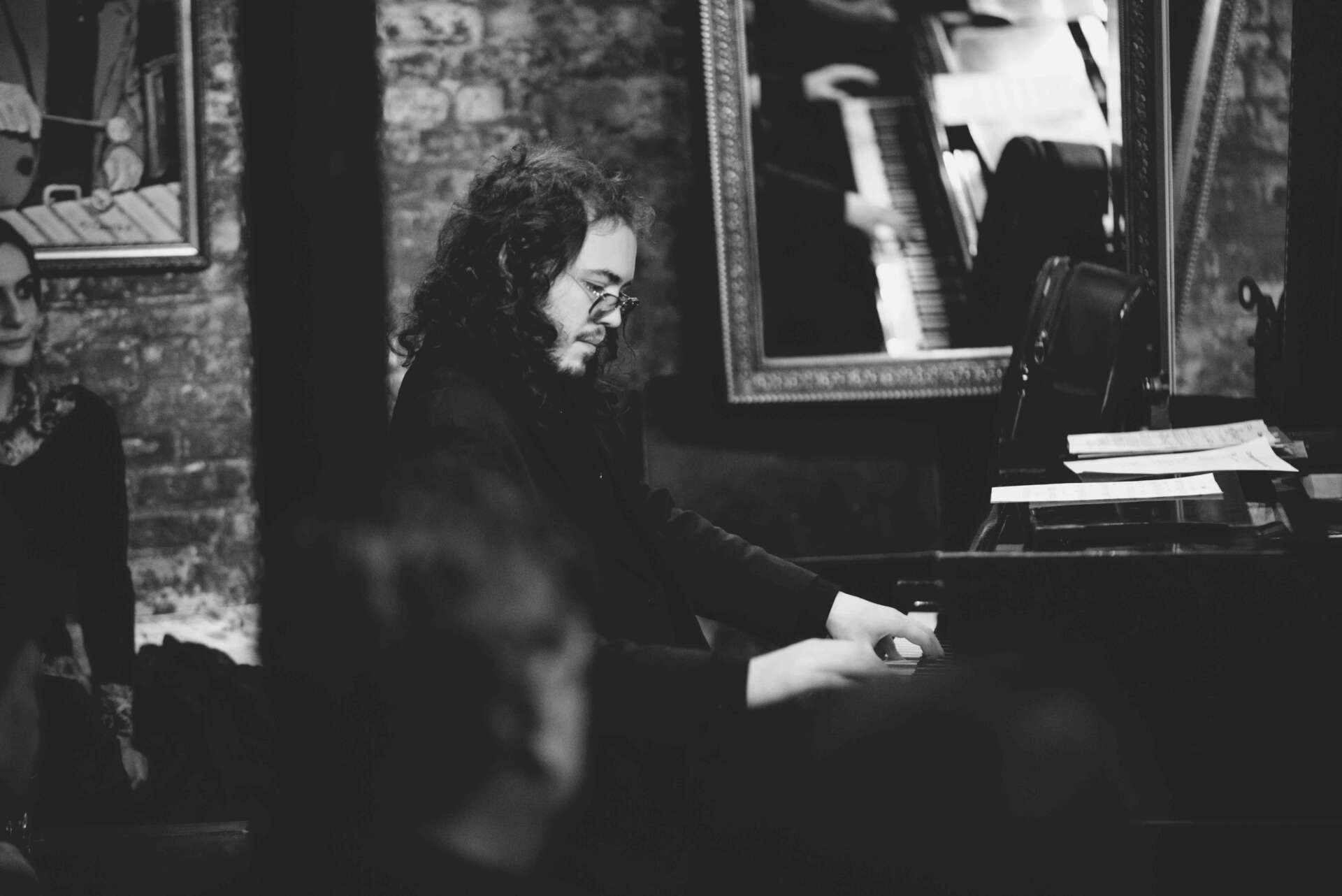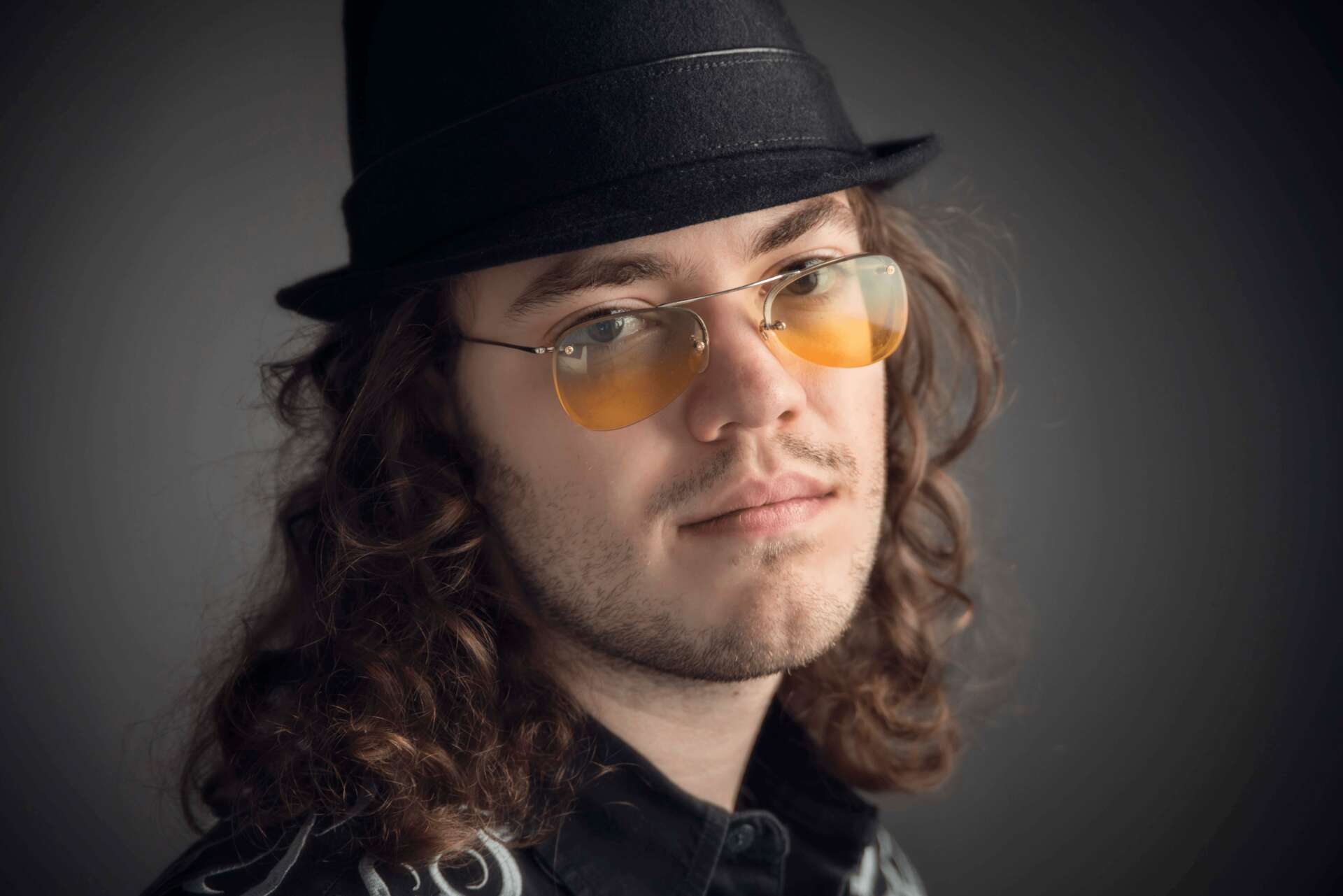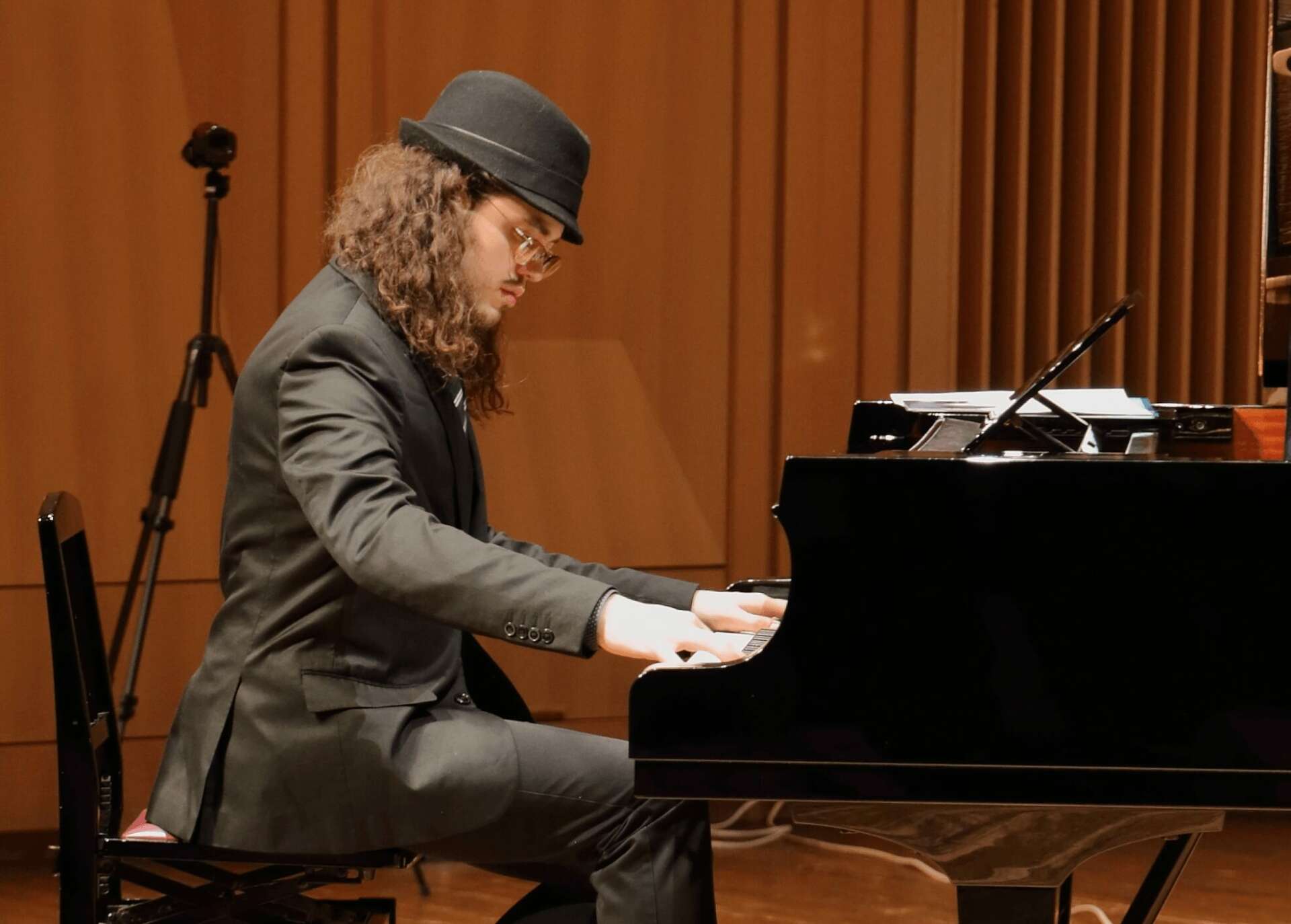We were lucky to catch up with Ben Rosenblum recently and have shared our conversation below.
Ben, appreciate you joining us today. Have you been able to earn a full-time living from your creative work? If so, can you walk us through your journey and how you made it happen? Was it like that from day one? If not, what were some of the major steps and milestones and do you think you could have sped up the process somehow knowing what you know now?
When I was a young musician in high school and college, I attended a number of masterclasses from older musicians who were very jaded about the music industry and the financial options available to them. At that point in time, there was a paradigm shift happening in the music industry. In the wake of streaming services like Spotify rising in popularity, royalties from recordings, which had been a big part of a musician’s living over the past 50 years, were now no longer a source of income. The musicians who were in their prime then were the first generation to not have this income source available. But they looked to their teachers and mentors who had told them that this would be a reliable money stream for them, and they felt a lot of resentment, which was then communicated to the younger generation that they were now teaching.
Because of this, I went into my music career not expecting much in terms of compensation. I figured I could always supplement my performing income with teaching and other music-related employment that wasn’t performing. But today, I find myself in a place where I can actually support myself 100% off my performing income. And not only that, I’m able to accept only the work that I find creatively fulfilling, and turn down offers that wouldn’t be rewarding musically. Because of this, when I teach workshops at colleges, I always try to communicate to the students: it is difficult and you really have to love what you do, but it is possible to earn a full-time living from your creative work, and in fact, many people are finding ways to do it.
It took a number of years to get to the point I’m at now. When I was first starting my musical journey, I took every gig that was offered, and I taught a full schedule of students every week. I also did work making sheet music for singers, transcribing charts for people and accompanying for classes. On the side, I made an effort to meet new musicians by playing sessions for fun and going out to concerts. I live in New York City, an epicenter for jazz where there are always new musicians moving in and out, and there are so many different subsets of the jazz scene to explore. So the opportunities were endless in terms of learning new music and being pushed creatively. Over the years, this has led to incredible collaborations with so many beautiful musicians.
Through this journey I’ve had a few insights about what can help foster a successful and financially viable music career. Below are a few key points:
1. Understand what you love doing the most – I spent a lot of time trying to learn music that I didn’t feel strongly about because I felt like I should know it or that it would help me get gigs. I think some of that was very useful and taught me a lot, but I also realized that there are plenty of opportunities to play the music that I really believed in, whether that was various world music genres, video game music, Broadway tunes and movie soundtracks interpreted through jazz, etc. When you play the music you love the most, you present the best version of yourself forward to the world. And at the end of the day, you have to be at a high level to have a successful music career, and it’s easier to get to that high level at something you really love.
2. Make yourself unique – there are thousands of incredible jazz pianists in New York. The ones I see who are the most successful have some kind of skill set that really sets them apart. Maybe they are an expert in stride piano and ragtime, or they have a strong gospel foundation that they bring to jazz, or they really understand Latin music on a deep level. Maybe they’ve invested time in learning how to program synths and keyboards, and have computer interface knowledge that allows them to fill a music director role. Maybe they are great arrangers and orchestrators who can help a singer realize a concept album. Personally, when I became serious about the accordion as a second instrument, the quality of my opportunities increased significantly.
3. Be professional and helpful in any situation – this one goes without saying, but also I’ve seen so many excellent musicians not get opportunities because bandleaders didn’t trust them to show up on time and know the music, or because they have a bad attitude.
4. Create your own opportunities – when I started booking my own tours and broadcasting that I was traveling with a band, all of a sudden many other bands started calling me to do touring work with their bands. People who are self-starting in this way will not only benefit from the opportunities they create for themselves, but also the perception that they are high-level working professionals.

Awesome – so before we get into the rest of our questions, can you briefly introduce yourself to our readers.
My name is Ben Rosenblum, and I’m a professional jazz pianist, accordionist and composer based in New York City, In a city of extremely proficient, inspiring musicians, I’m most proud of the fact that I’ve fostered my own unique, musical community where I get to collaborate with musicians at the highest level across dozens of genres, all while maintaining my own band where I can play my original compositions. Recently, I re-wrote my bio for my website, and I think it communicates my brand much better than anything else I could say. So I’m including it below:
Pianist, accordionist and composer Ben Rosenblum has traversed a truly unique musical path, one that has seen him perform alongside world-class musicians across more than twenty music genres and fifteen countries, lead bands at prestigious venues across the world, all while maintaining a signature, melodic musical voice. Rosenblum’s journey has taken him on tours with Grammy-winning pop artist Rickie Lee Jones and Juno-winning contemporary Indian singer Kiran Ahluwalia. He’s played Brazilian choro with Ephrat Asherie Dance and Brazilian forró with The Late Night Show’s Nêgah Santos and famed forró band Forró in the Dark. His roots in jazz have led to an over ten-year relationship with Grammy-winning bassist Curtis Lundy, performing at festivals alongside jazz luminaries Bobby Watson, Sean Jones and Warren Wolf. He has appeared with the Baltimore Symphony Orchestra on accordion, and as a guest soloist on piano at Carnegie Hall’s Stern-Perelman Auditorium with Maestro Reona Ito’s New York Harmonic Band. Throughout it all, Rosenblum has always maintained the same priority – to tell a compelling story with his music, reaching the hearts of his audience and connecting on an emotional, intellectual and spiritual level.
Rosenblum brings this wealth and diversity of experiences to his projects as a leader, overseeing a full tour schedule as a solo artist, with his trio and most recently, with his six-piece ensemble, the Nebula Project. Since his first album as a leader, Instead (4 stars, Downbeat Magazine), he has since released three follow-up records to critical acclaim, including favorable reviews in almost every major jazz publication (Downbeat, All About Jazz, Jazziz, JazzTimes, JazzEd, NYC Jazz Record, JazzLife Japan and many more). Across multiple tours in Japan, Europe, Canada and the United States, Rosenblum has brought his bands to perform at some of the world’s most respected music venues, including Ravinia, Kuumbwa Jazz Center, the Library of Congress, Bird’s Eye (Basel) and Yokohama’s Himawari-No-Sato Concert Hall. At any given show, Rosenblum might draw on influences from ten or more countries, with interests going beyond jazz to include various music traditions from South America, Eastern Europe, Ireland, India, the Caribbean and the Middle East.

What can society do to ensure an environment that’s helpful to artists and creatives?
My view on this is simple: go out and support your local arts scene. Attend concerts, go to art openings, hire bands for your events, get to know artists on a personal level and sign up for their mailing lists. There are so many ways that the music industry can and should improve, but at the end of the day, arts are about local communities and connection. I’ve traveled to so many small communities across America where one person decided to open up a small jazz club because that person believed in the music and wanted to foster a community, and all of a sudden that place became a beacon of connection and joy in an otherwise very sleepy place. Everyone wants to feel like part of something bigger than themselves, and the arts provide that space in a non-judgmental, non-exclusionary way. In a world where so many forces are encouraging us to stay home and watch Netflix, go out and be part of the arts scene.

What’s the most rewarding aspect of being a creative in your experience?
For me, music is a universal language, one that musicians can speak fluently to each other, but one that non-musicians can also share in and understand. The most rewarding aspect of being a touring artist is traveling to countries where I don’t speak the language and would otherwise have a difficult time finding community, and already having a built-in network of people who share a common love of the thing that I’ve dedicated my life to. The music community has uplifted me in so many ways, and I’ve formed deep friendships with people very different than myself just because we were able to connect through music first. This is true of both musicians and non-musician jazz-lovers. I think communities like jazz are beautiful in that they are very welcoming of eccentric and different personalities – if you can play the music or respect the art form on a deep level, you are automatically a part of the community.
Contact Info:
- Website: https://www.benrosenblummusic.com
- Instagram: https://www.instagram.com/benrosenblummusic
- Facebook: https://www.facebook.com/benrosenblummusic
- Youtube: https://www.youtube.com/benrosenblummusic

Image Credits
Names are in the file names except for the first one I uploaded, which is Victor Hill.


